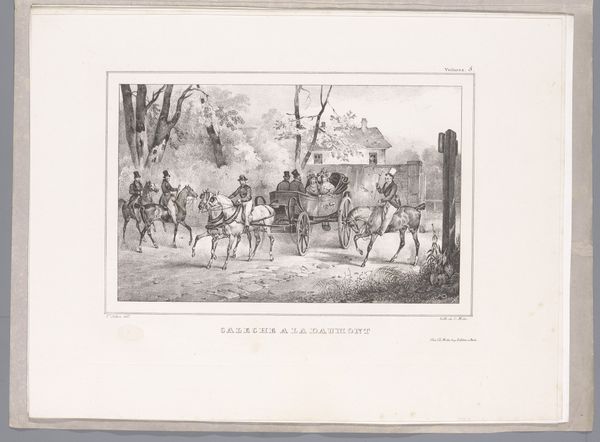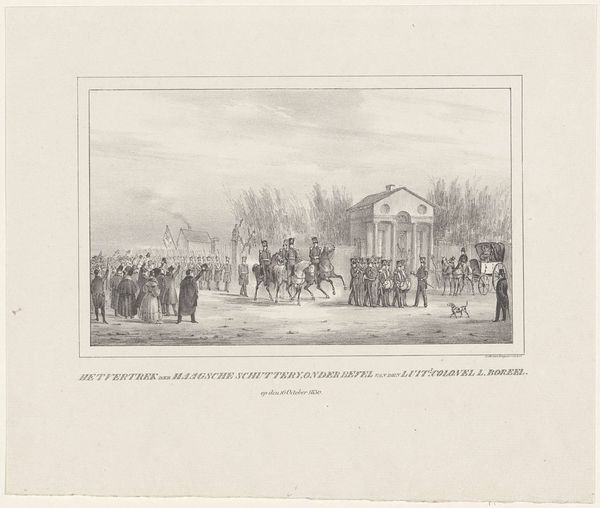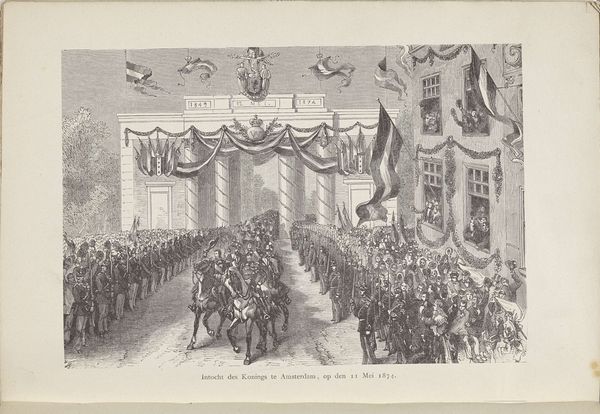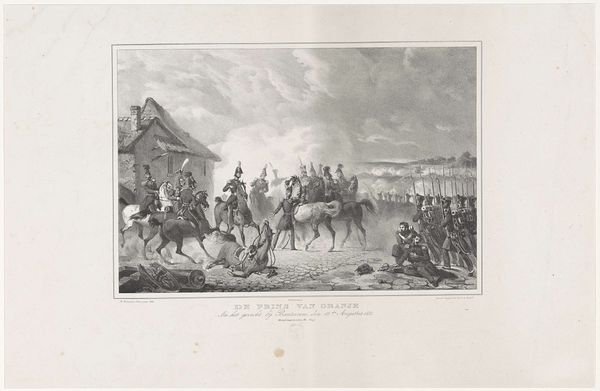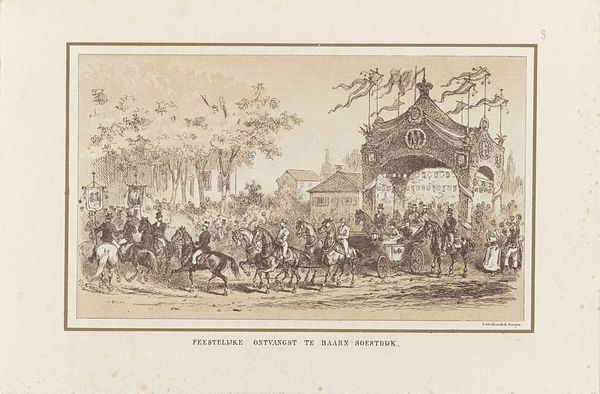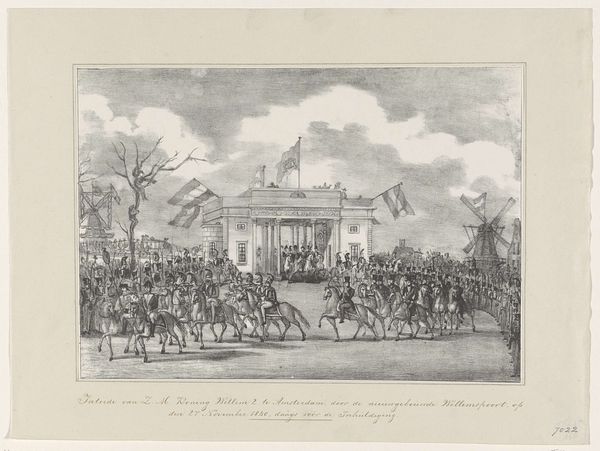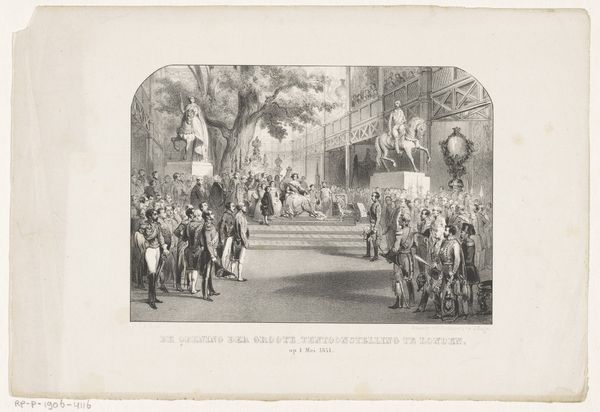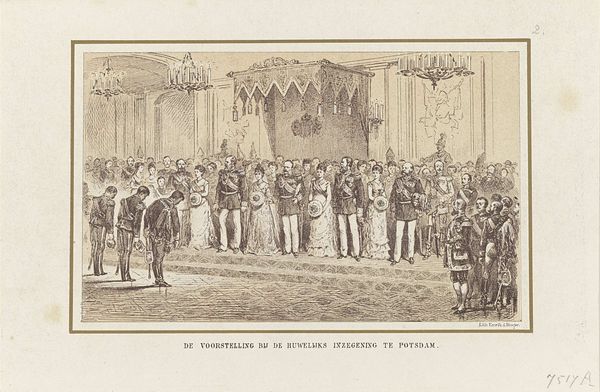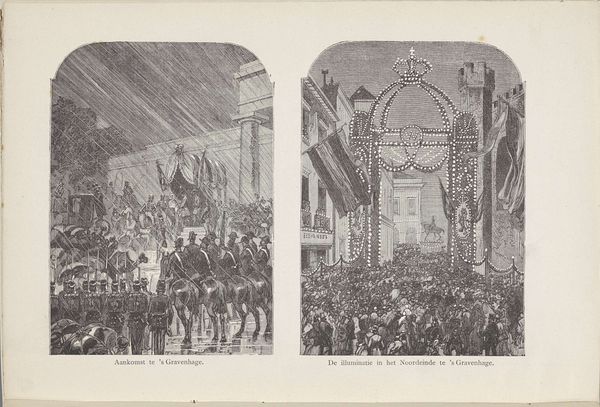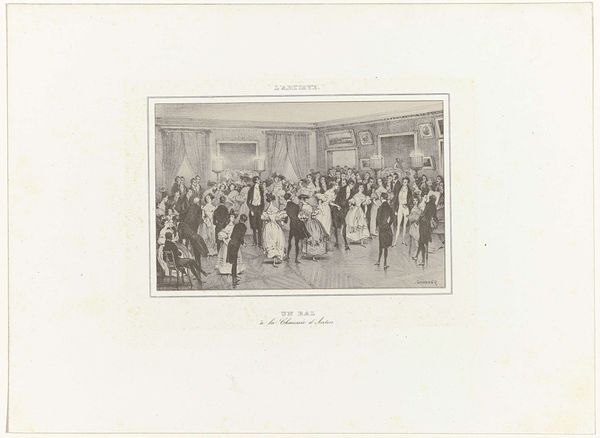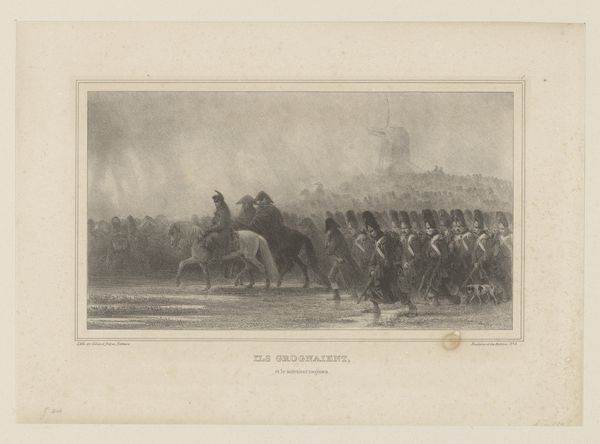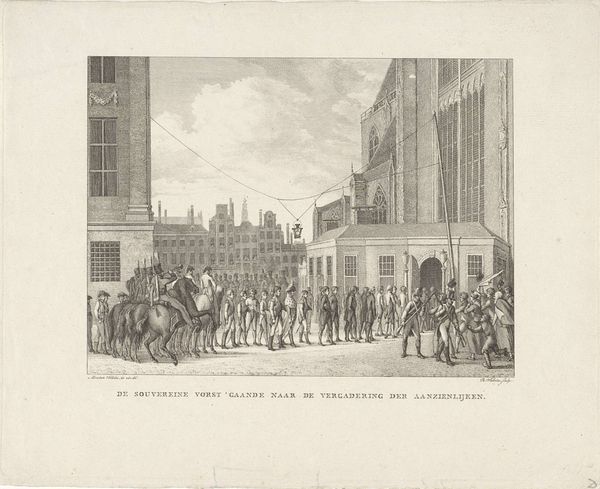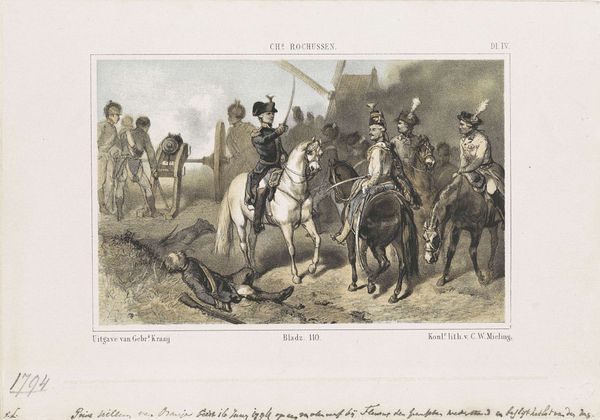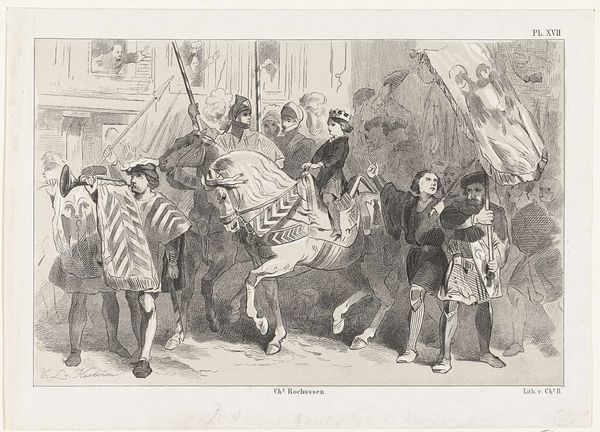
print, engraving
#
dutch-golden-age
# print
#
old engraving style
#
genre-painting
#
history-painting
#
engraving
#
realism
Dimensions: height 155 mm, width 240 mm
Copyright: Rijks Museum: Open Domain
This print, made in 1878 by an anonymous artist, depicts a bridal procession in The Hague. It was made using line etching, a process by which a metal plate is coated in wax, drawn into with a sharp needle, and then submerged in acid. The acid bites away the exposed lines, leaving an image that can be inked and printed. Look closely, and you'll see how the character of those etched lines influences the scene. The image has a sharp, graphic quality, a result of the precision demanded by the etching process. The contrast between the lines and the blank paper creates a sense of depth and texture, particularly in the rendering of the crowd and the architecture. This print reflects a moment in time when printmaking was transitioning from a craft-based activity to a more industrialized one. The etching process, while still requiring skill, was becoming more accessible, allowing for wider distribution of images and ideas. The work embodies a kind of democratization of images, while still celebrating traditional craft, blurring the line between high art and everyday life.
Comments
No comments
Be the first to comment and join the conversation on the ultimate creative platform.
